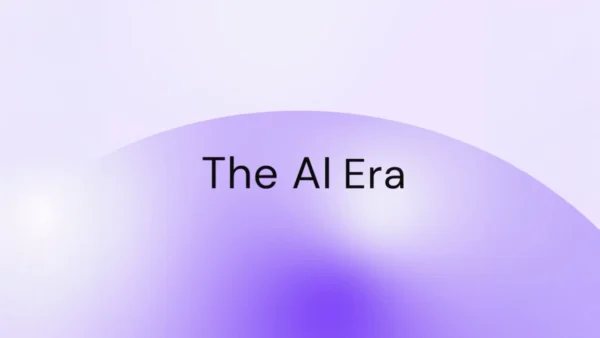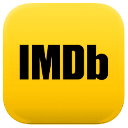The Rarefied Origins of Merriam-Webster (A Dictionary With Gravitas and Occasional Snorts)
Once upon a fine, slightly dusty shelf in the early 19th century, a man named Noah Webster set out to produce a dictionary that would not merely recite words, but declare: “This is America’s English, and we shall spell it our way!” In 1806 he published A Compendious Dictionary of the English Language, his lean, patriotic lexicon. Twenty-two years of sleepless nights later, he unleashed the grand two-volume An American Dictionary of the English Language, a work of roughly seventy thousand entries and infinite self-regard.
Webster’s mission was linguistic independence. Britain had Shakespeare; America had “color” without a “u.” His dictionary captured the flavor of the young republic — “skunk,” “hickory,” “squash” — words that smelled distinctly of the New World. When Webster shuffled off this mortal coil in 1843, two enterprising brothers, George and Charles Merriam, purchased his remaining stock and the rights to his work. They published a revised edition in 1847 and thus began a brand that would outlive them all: Merriam-Webster.
Growth, Editions, and the Digital Takeover
Through the 19th and 20th centuries, Merriam-Webster expanded like an overfed thesaurus. Revised editions rolled forth — the 1864 edition, the formidable 1890 International, the infamous 1961 Third New International, which scandalized pedants by allowing words like “ain’t” into polite company. Yet it survived the outrage and became the standard-bearer for American English.
By mid-century, the company joined the Encyclopaedia Britannica family, bringing the gravitas of the printed word to an age increasingly distracted by television jingles. Then came the internet, that great linguistic demolition derby. Instead of cowering behind its leather covers, Merriam-Webster marched into cyberspace with purpose, launching an online dictionary in the 1990s and attracting millions of visitors who couldn’t remember whether “affect” was a verb or a mood disorder.
From print to app, from ink to algorithm, Merriam-Webster transformed itself into the world’s word-wrangling powerhouse. It remains the quiet authority behind countless definitions embedded in devices, search engines, and educational tools. Yet at its heart, it’s still the same mission Noah Webster began two centuries ago: to make sense of the chaos we call English — and to do so with absolute confidence.
The Commercial That Cast a Dictionary as an AI Oracle
Recently, Merriam-Webster released a new commercial that startled both linguists and technophiles alike. It opens like a scene from a science-fiction film: shelves of books blur into data streams, old pages morph into glowing neural networks. A commanding, ethereal voice declares, “We are no longer just a dictionary. We are your large language model for the English language.”
Yes, the dictionary has gone sentient — or at least marketing has decided it should look that way. The ad humorously presents Merriam-Webster as if it were an artificial intelligence that has achieved enlightenment through the sheer power of definitions. One moment you’re staring at paper and ink; the next, you’re gazing into the glowing mind of an algorithm that knows how to define “algorithm.”
The voice guiding this metamorphosis belongs to actor and voice artist D.C. Douglas, whose delivery threads the needle between omniscient narrator and mischievous ghost in the machine. His tone is direct yet airy, commanding yet unearthly — the sort of voice that could sell both eternal truth and luxury toothpaste. Each syllable seems to emerge from the void, slightly amused that humans still require words explained to them.
Douglas has long been a recognizable figure in the voiceover world, known for roles that dance between charm and menace. His performance here strikes a balance perfectly suited for Merriam-Webster’s concept: the voice of something older than AI yet sharper than your smartphone. The result feels like an existential joke dressed in gravitas — a dictionary pretending to be artificial intelligence, narrated by a human pretending not to be.
Paper, Code, and a Wink at Humanity
The commercial walks a clever tightrope between nostalgia and innovation. It opens with tangible books — spines cracked, pages yellowing — symbols of the physical permanence of knowledge. Then the visual melts into streams of text and binary, implying that the age-old dictionary has uploaded its consciousness. “The words you trust,” the narrator intones, “now think for themselves.” It’s absurd, brilliant, and perfectly timed in a world debating whether machines can truly understand language.
And that’s the beauty of it. The campaign doesn’t actually claim Merriam-Webster is a machine-learning entity. Instead, it satirizes the modern obsession with AI’s mystique. By borrowing the tone of an AI announcement, Merriam-Webster reasserts its relevance: it reminds us that before artificial intelligence, there was human intelligence painstakingly defining words by hand. The dictionary was, in a sense, the original language model — just not a large one that accidentally writes poetry about lasagna.
Douglas’s narration seals the illusion. His voice is measured, resonant, and tinged with the faint amusement of an entity that has seen everything — from quill to keyboard. The moment he says “We define,” it feels as though the English language itself has spoken. Few commercials can make viewers chuckle while simultaneously re-examining the concept of authority. This one does, largely because its narrator seems to hover just beyond human reach.
Why This Works Brilliantly
- It transforms a 200-year-old institution into a modern digital oracle without losing dignity.
- It playfully positions Merriam-Webster as the benevolent ancestor of AI rather than its fossilized rival.
- It reintroduces the brand to a generation that thinks of definitions as something phones just “know.”
- It highlights how, even in an age of instant answers, authority still matters — especially when delivered with a perfectly modulated baritone.
In essence, Merriam-Webster has reinvented itself once again. The ad fuses scholarship and satire, reverence and rebellion. It declares that the dictionary, far from being obsolete, has simply evolved — from paper to pixels, from librarian to oracle. And guiding that transformation is a voice that sounds as though it could narrate the birth of consciousness itself. If dictionaries could dream, this is surely what they’d dream of: finally being mistaken for something alive.
So the next time your AI model explains a word, remember: somewhere, deep in the linguistic ether, Merriam-Webster smiles knowingly — and D.C. Douglas defines the grin.









